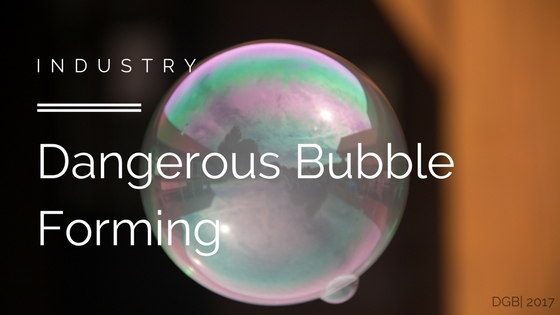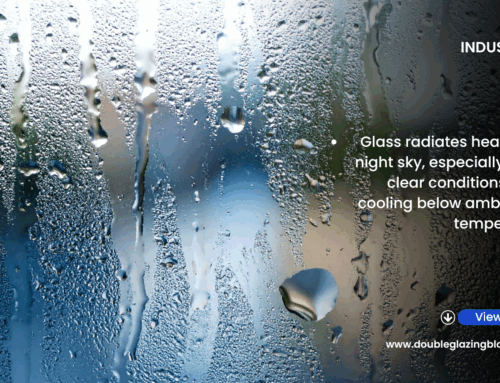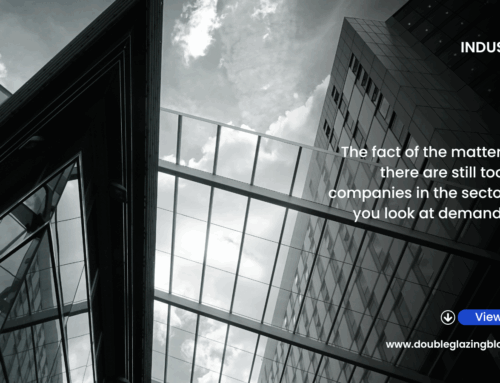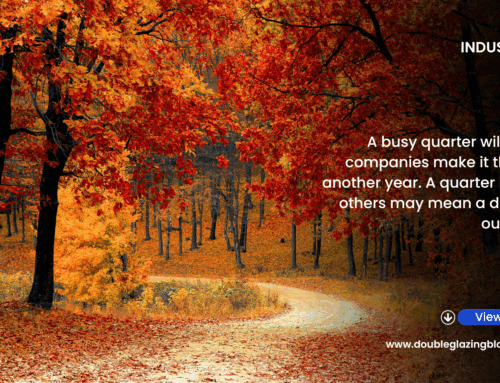The term “bubble” in business is used to describe a situation where a particular part of any market is growing quickly, substantially, but with little stability at the core of it. Hence, popping like a bubble when that inflating stops.
I see a bubble forming in the industry right now and if certain factors play out in the next 12 to 18 months, it could be potentially disastrous for quite a large number of companies. This bubble is in mergers and buyouts. Here is what I think could make that bubble burst with a big bang.
Interest rates and loans
There has certainly been quite a large number of industry mergers and acquisitions in the past couple of years. There is a serious amount of consolidation as the industry tries to become a size and shape the suits a modern consumer demographic and changing trends. The largest are buying the large, the medium are buying the small. We have seen vertical integration, outside investors make waves in the sector, groups become super-groups and super-groups become even bigger. It has been an exciting time to report on the industry.
But it’s worth remembering that when acquisition deals are done, sometimes they are done on borrowed cash. It’s not always the case that the buying company simply puts their hands in their own pockets to make these things happen. Often it’s borrowed money. It could be from a bank, one that specialises in investments. It could be an investment company or a fund that helps lend the cash.
These loans, no matter who they are from, are subject to interest rate charges. The good news right now is that interest rates are about as low as they can go. Obviously banks and investment companies will put their own charges on top of the base rate of interest, but even with their margin on top, money has never been this cheap to lend. Great if you’re the one buying up companies. Cheap credit and still liquid money markets make for easy acquisitions. Moreover, the money required to service that debt, in other words repay the interest on those loans, is pretty low too.
This is where the bubble lies. It only takes one or two interest rate rises before these loans which were previously cheap to service suddenly become expensive. As it stands, the chances of any interest rate rise is low. There won’t be one this year. There may not even be one next year. But chance is no guarantee, and more than anything else it depends on inflation. Inflation is one of the primary reasons why interest rates rise and fall.
If interest rates do rise from where they are now (o.25%) to around 1% or even slightly above that, the companies in our industry that have been acquiring are suddenly going to need a lot more money to pay for the extra interest charges on their loans. 1% might not sound all that much, but when you consider rates have been non-existent for so long now, this suddenly seems expensive, and borrowing from major fenestration companies has been done at these extremely low rates.
A lot hinges on inflation
This is where inflation plays a key part in all of this. When inflation rates rise, interest rates are often raised to help try to cool the economy from overheating in one department or another. When inflation falls, interest rates fall too.
For that last few months inflation rates have risen, with the Bank of England predicting 3% by the end of this year. Again, 3% doesn’t sound that much, but when you consider that inflation for a long time has been at near 0%, by sheer low range alone this is a bit of a hike. That being said inflation actually fell 0.3% last month to 2.6%, pulling away from the predicted 3% level.
The key point here is that the big companies and big groups who have been doing the acquiring in the window industry in recent years will be praying that inflation stays below 3% and continues to fall in the coming months. They will be hoping Sterling can at least remain stable or even gain against it’s peers which will help alleviate rising inflation levels further. They will be hoping for falls in inflation as they know that if it rises any further there will be growing pressure to raise interest rates to try to counteract it. Good for savers, bad for the amount they have to pay on the loans they have used to buy other companies.
The worst case scenario here is that Sterling falls sharply, losing the gains against the Dollar in recent months. This in turn could push inflation way past the 3% level. If it gets even just half a percent over that barrier, I am pretty sure we could see at least two interest rate rises, maybe three if it isn’t budging. They will most likely by 0.25% each time, taking interest rates to 1% overall. It could be even higher, depending how drastic the BoE thinks it needs to be. So, you can add at least three quarters of a percent, probably more, to the interest charges acquiring companies are having to pay to service their loans.
This becomes the delicate balance. They have to get that money from somewhere. Do they charge companies further down the supply chain in the hopes that it will cover their loans? Risky, especially if the wider economy is fragile and consumers are cutting back spending. Do they take it on the chin and risk riding out the storm and sacrificing margin? Even riskier. Margins keep businesses afloat, and banks and investment companies will only keep their money in these companies so long as they can see any sort of return on investment.
Here then is the crux of the matter. It doesn’t become a matter of profit margins, rather than those stumping up the cash believing they will get their money back and with interest. We have all heard of companies going bust because the bank has decided to withdraw their funding. If the people providing the money for window industry acquisitions start to believe that their money isn’t coming back, they will withdraw their cash. If that happens, those acquisitions fall through and we could see some firms go to the wall completely.
It’s a risky business this whole acquisition thing. You can do so much yourself to make it work, but you need help from outside as well to keep you on the tracks. The good news is that the chances of interest rate rises are far off right now. But I think this is a bubble which has a 12-18 month timeline on it. One to keep an eye on, but one that can’t be ignored.
To get weekly updates from DGB sent to your inbox, enter your email address in the space below to subscribe:







